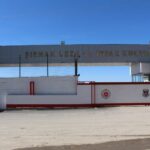Summary by News About Turkey (NAT):
The article argues that parliamentary systems are economically superior to presidential systems due to their stability, inclusive institutions, and better economic performance. Countries with parliamentary systems tend to have higher GDP growth, lower income inequality, and more effective governance. In contrast, presidential systems often suffer from political instability, policy discontinuity, and greater economic volatility. The concentration of power in presidential regimes can lead to inefficiencies and exacerbate wealth disparities. Overall, the structure of parliamentary systems fosters better long-term economic outcomes.
Read more below.
Why Parliamentary Systems are Better for the Economy than the Presidential Ones
Parliamentary systems foster stronger, more inclusive institutions which contribute to better economic performance and stability. Evidence suggests that presidential systems, by contrast, tend to exhibit lower GDP growth rates, higher income inequality, and greater economic instability.
In our 2018 paper, we embarked on a journey to explore how different forms of government impact economic performance. The results were telling: countries with presidential systems consistently underperform compared to those with parliamentary systems. This sparked a deeper investigation, culminating in our recent book (which expands on these findings and delves into the institutional dynamics at play.
Our findings reveal that presidential regimes suffer from lower economic growth, higher inflation, and greater income inequality. These observations led us to investigate the underlying sources of such inferior outcomes exhibited by these regimes. We find that the inherent instability and policy discontinuity in presidential systems are significant factors. The concentration of power in a single executive often results in political volatility, which can disrupt economic planning and implementation. For example, the perception of political stability within a given country is statistically significantly lower in presidential regimes compared to parliamentary ones; moreover, democratic elections run for more time continuously in parliamentary systems.
One of the most striking findings is the difference in GDP growth rates. On average, countries with presidential systems experience growth rates that are 0.6 to 1.2 percentage points lower than those in parliamentary systems. For example, in 1960, the median real GDP per capita in presidential countries was $1,428, compared to $6,260 in parliamentary countries, based on 2010 US dollars. To illustrate this difference, for every dollar earned in a presidential country, $4.39 was earned in a parliamentary one. Over time, this income gap has increased. By 2019, the median GDP per capita had grown to $24,659 in parliamentary countries, while in presidential countries, it had only reached $5,204. Thus, the disparity widened further, with every dollar in a presidential country corresponding to $4.74 in a parliamentary one. This demonstrates a significant and growing income gap between the two types of governance over the period analysed. Additionally, inflation rates are higher and more volatile in these systems, further undermining economic stability.
Income inequality is another critical issue. Presidential systems tend to exacerbate wealth disparity, partly because the concentration of power often leads to policies that favour the elite. We found that, holding all else constant, income inequality is between 16 and 20 percent worse (more unequal) in presidential compared to parliamentary countries. This dynamic is in stark contrast to parliamentary systems, which typically foster stronger and more inclusive institutions. These institutions are crucial for economic development as they provide a stable framework for governance, enhance political accountability, and support effective legal systems.
The role of institutions
Meanwhile, strong institutions are more likely to emerge in parliamentary systems, where the need for coalition-building and consensus promotes stability and inclusivity. This environment is conducive to effective economic policies and better crisis management. In contrast, presidential systems, with their winner-takes-all approach, often lead to political polarization and inefficiencies.
Using a variety of metrics, we also find that parliamentary regimes tend to have longer periods of stable democracy, greater political stability, and more inclusive and participatory democratic processes. The quality and inclusivity of institutions are crucial for economic performance. Our findings reveal that parliamentary systems are associated with higher government effectiveness, better regulatory quality, and greater participation in democratic processes. These institutions create an environment where policies are more likely to be effective and inclusive, leading to better economic performance. Parliamentary systems like Canada foster inclusive institutions by distributing power more evenly across multiple branches of government, ensuring greater accountability and preventing any single entity from dominating the political landscape.
Another critical aspect is the distribution of legislative power and control. Presidential systems often concentrate power in the hands of the president, which can lead to unchecked authority and potential abuses, such as is exemplified in President Recep Tayyip Erdogan’s actions in Turkey, where he has used his presidential power to consolidate control over the judiciary, media, and other key institutions, undermining democratic checks and balances. In contrast, parliamentary systems have stronger checks and balances, limiting the power of any single actor. We document that parliamentary regimes have a greater perceived rule of law, greater legislative constraints on the executive, and better control of corruption.
There are also economic implications with these institutional differences. Parliamentary systems tend to have higher levels of human capital, greater openness to trade, and more effective economic policies. These factors contribute to better overall economic performance, as seen in higher GDP growth rates and better health and education outcomes.
In examining data from 138 countries between 1960 and 2019, our analysis revealed the interplay between forms of government, economic performance, and institutions. Substantial variation in economic outcomes can largely be attributed to differences in institutional types and quality. Constitutions play a crucial role in shaping these institutions, which in turn significantly impacts economic performance. For instance, institutions are primary determinants of per capita income growth. The lower income growth observed under presidential systems compared to parliamentary systems can be traced back to the generally poorer quality of institutions within the former. Even when presidential systems manage to establish robust institutions, such as in the US which has separation of power and many checks-and-balances, the inherent structure of these regimes may still hinder income growth relative to parliamentary systems.
In terms of income inequality, while institutional quality explains much of the variation, presidential systems tend to exacerbate income inequality beyond the role of institutional factors; however, inflationary outcomes are less influenced by institutional quality and more directly by the type of government system. That is, institutional quality is not estimated to impact the outcomes here, and presidential systems have worse outcomes independent of their impact on institutions. Presidential regimes consistently display poorer inflationary performance compared to parliamentary regimes throughout the analysis period, even after controlling for the independence of the central bank (the institution which conducts monetary policy in the vast majority of countries). This finding points to the pivotal role of constitutions in influencing economic outcomes, highlighting the complex interplay between governance structures and economic performance.
Current political narratives
The current political climate in various regions and states underscores the significance of our findings. Around the world, we see a troubling trend of leaders seeking to consolidate power and weaken democratic institutions. Countries like Turkey and Brazil are prime examples, where shifts toward authoritarianism have had significant economic repercussions, such as increased political instability, reduced foreign investment, and economic downturns driven by the erosion of institutional checks and balances.
Our research also delves into the dynamics of policy implementation in different systems. In presidential systems, frequent changes in administration can lead to abrupt shifts in policy direction, which can disrupt economic stability. This is particularly problematic in areas requiring long-term planning, such as infrastructure development and education reform. By contrast, parliamentary systems, with their potential for more stable and continuous governance, are better equipped to handle such long-term projects.
We also examine the impact of political culture on economic performance. Presidential systems often foster a more adversarial political environment, which can lead to polarization and conflict. This can create an atmosphere of uncertainty, discouraging investment and economic activity. Parliamentary systems, with their emphasis on consensus building and cooperation, tend to foster a more stable and predictable political environment, which is conducive to more favourable economic outcomes.
Overall, there is a compelling argument for why parliamentary systems generally outperform presidential ones. As we face global challenges and shifting political landscapes, these insights are more relevant than ever, and should guide us toward policies that can foster sustainable economic growth and development. The current trend of leaders seeking to consolidate power and weaken institutions serves as a stark reminder of the importance of maintaining robust, inclusive governance structures to ensure long-term economic stability and prosperity.
These insights were taken from the authors’ recent book: Why are Presidential Regimes Bad for the Economy? Understanding the Link Between Forms of Government and Economic Outcomes (Routledge, 2023)
Richard McManus is Professor of Economics at Canterbury Christ Church University. His main research is in the impact of government on macroeconomic outcomes.
Gulcin Ozkan is Professor of Finance at King’s Business School. Gulcin’s main research focuses on the intersection of macroeconomics and finance covering issues such as financial crises; financial stability; monetary and macroprudential policies.
This article is published under a Creative Commons License and may be republished with attribution.
Source: Australian Institute of International Affairs



